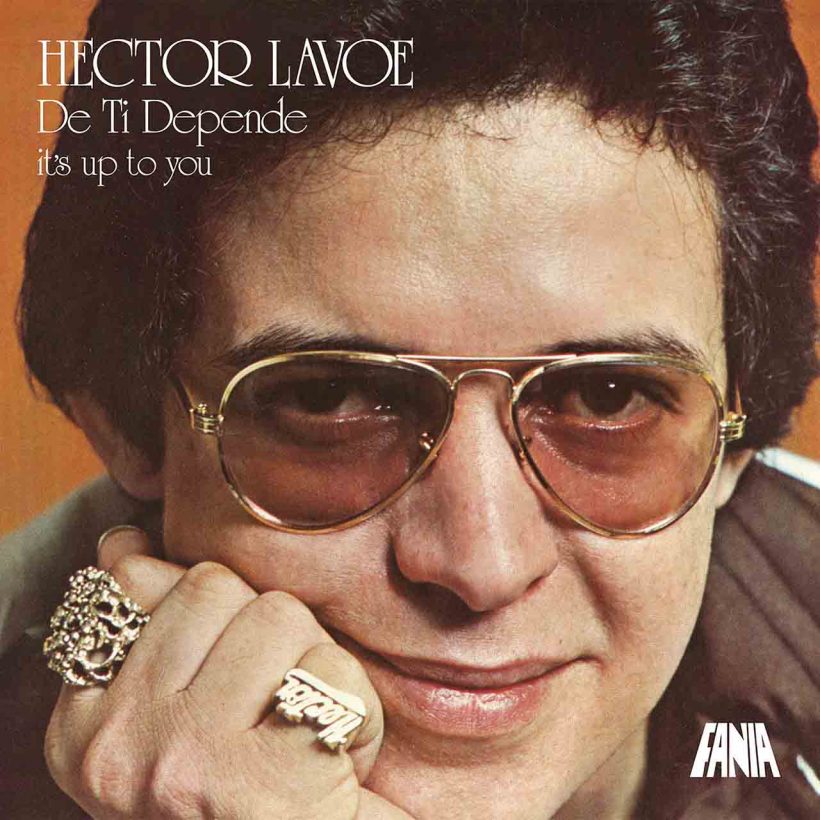‘Ti De Depende’: Héctor Lavoe’s Solo Triumph
The classic salsa album is imbued with a sense of purpose from its title on down.

Nicknamed “El Cantante de los Cantantes” (“The Singer of Singers”), Héctor Lavoe’s angelic vocals, improvisational genius, and effortless, infectious command of material made him the most beloved salsa singer of his generation. His career as a soloist, however, began reluctantly. Ensconced within trombonist/bandleader Willie Colón’s hugely popular conjunto since 1967 – crafting hits like “Che Che Colé,” “Barrunto,” and “La Murga” amongst many others – Lavoe, along with the rest of the Latin music world, was stunned when his friend and collaborator abruptly disbanded the still-thriving group in 1974. Officially Colón explained the split as a desire to explore other musical interests. Others understood it as an act of both self-preservation and tough love – Colón’s last-ditch effort to course-correct Lavoe’s increasingly erratic behavior stemming from his mounting struggles with drug addiction.
Listen to Héctor Lavoe’s Ti De Depende now.
“At first, I was hurt,” Lavoe later told Latin NY magazine in 1980, “but I soon realized the split up had its purpose; it was a test! I had to prove that I could go it alone.” Far from abandoning Lavoe, Colón continued to guide the singer’s recordings from the producer’s chair, beginning with 1975’s sterling solo debut, La Voz. Anchored by two hits – “El Todopoderoso” and the composition that would become one of Lavoe’s signature songs, “Mi Gente” – the album’s success assuaged some of the salsero’s insecurities. After the release of Lavoe’s definitive live version of “Mi Gente” – performed with the Fania All-Stars in San Juan – Colón believed Héctor was ready to more actively take on the responsibilities of bandleader. But not just any group. For his next effort, Lavoe would be handed the reins of the core of Colón’s celebrated, longtime band – percussionists Jose Mangual Jr. and Milton Cardona, pianist “Professor” Joe Torres, and bassist Santi Gonzalez – augmented by other top-flight musicians.
1976’s resulting De Ti Depende is imbued with a sense of purpose from its title (“It’s Up to You”) on down. Energized by Lavoe’s playful tongue-rolling ad-libs and Torres’ dynamic piano solo, a terrific adaptation of Venezuelan singer Perucho Torcat’s classic “Vamos A Reir Un Poco” (“Let’s Laugh a Little”) opens the LP and provides Lavoe the chance to slyly reference his own mercurial reputation (“Esta risa no es de loco/ Se estan riendo de mi”: “This laugh is not crazy/ They are telling me that I am crazy”). Even more explicitly self-referential is “Hacha Y Machete,” a declaration of Lavoe and Colón’s enduring musical and personal chemistry that’s forcefully convincing in both theme and practice. Lavoe’s evolution as a song stylist is further reflected by the album’s boleros: the lovely title track, prominently featuring Yomo Toro’s tres guitar, and the spellbinding “Tanto Como Ayer” accented by Louie Ortiz’s elegant strings and horns.
The album’s biggest hit and acknowledged salsa masterpiece is “Periodico de Ayer.” Composed by the prolific Tite Curet Alonso, the song likens expired love to yesterday’s newspaper, and Lavoe, as the spurned narrator, delivers yet another authoritative performance. He’s also immeasurably supported by Colón’s brilliant orchestral string arrangement and countermelody, which encode additional layers of urgency and meaning. That Lavoe and Colón’s initial break-up was, in fact, headline news in Latin NY just a few years earlier infuses the song with an extra poetic power. Heard knowing that De Ti Depende’s triumphs couldn’t prevent Lavoe from suffering through an eventual tragic decline, ending with his death at just age 46, it possesses the heartbreaking potency of an elegy.












